What Voids Your Toyota Warranty? The Top 5 Things Owners Do (That They Shouldn't)
1. Neglecting Scheduled Maintenance and Keeping Poor Records
This is perhaps the most common and easily avoidable mistake owners make. Your Toyota warranty agreement explicitly outlines a schedule of recommended maintenance tasks – oil changes, tire rotations, fluid checks, filter replacements, and more. These services aren't just suggestions; they are vital for your vehicle's long-term health and for validating your warranty. Skipping an oil change or neglecting a major service can lead to premature wear and tear on critical components. If a major engine failure occurs and Toyota sees a history of missed oil changes or insufficient maintenance, they have legitimate grounds to deny your warranty claim, arguing that the failure was due to neglect rather than a manufacturing defect.
Equally important is maintaining meticulous records of all service performed. Whether you take your Toyota to a dealership service center or a trusted independent mechanic, always keep receipts, invoices, and detailed service records. These documents serve as proof that you've adhered to the manufacturer's maintenance schedule. Thanks to the Magnuson-Moss Warranty Act, you're not obligated to get service at a dealership to keep your warranty valid, but you *are* responsible for ensuring the work is done correctly and documented thoroughly. Without this paper trail, proving that you've done your part becomes incredibly difficult, leaving your warranty vulnerable.
2. Using Non-OEM or Unapproved Parts and Fluids
While the allure of cheaper aftermarket parts or different fluid brands can be tempting, straying from Toyota's recommendations can be a risky gamble with your warranty. Toyota designs and engineers its vehicles to work optimally with specific OEM (Original Equipment Manufacturer) parts and approved fluids. These components meet stringent quality, performance, and compatibility standards. Using parts that don't meet these specifications, or fluids (like engine oil, transmission fluid, or coolant) that are of an incorrect type or viscosity, can lead to unforeseen damage.
For instance, an incompatible oil filter might restrict flow, or an incorrect grade of engine oil might not provide adequate lubrication, leading to engine wear. Similarly, using unapproved brake pads or suspension components could compromise safety and performance. If a component fails and Toyota's technicians determine that the failure was caused by a non-OEM or unapproved part or fluid, your warranty claim for that specific component and any related damage could be denied. It's crucial to understand that they can't void your *entire* warranty just for using an aftermarket part, but they can deny coverage for damage directly attributable to it. Always consult your owner's manual for recommended parts and fluid specifications, or better yet, opt for genuine Toyota parts and fluids to play it safe.
3. Extensive Aftermarket Modifications Beyond Manufacturer Specifications
Modifying your Toyota can be a fun way to personalize it or enhance its performance, but not all modifications are created equal in the eyes of your warranty. While minor cosmetic changes like tinting windows or adding floor mats are generally harmless, significant alterations can put your warranty at risk. This includes performance-enhancing modifications such as engine tuning, adding aftermarket turbochargers or superchargers, extensive suspension lifts or drops, installing larger wheels and tires that alter critical sensor readings, or making significant changes to the exhaust or electrical systems.
The issue arises when these modifications alter the vehicle's original engineering, stress components beyond their design limits, or interfere with its intended operation. If a modified component or a system connected to it fails, Toyota can argue that the modification was the direct cause of the failure and deny the warranty claim for that specific issue. For example, if you install a non-approved lift kit and subsequently experience driveshaft or steering component failure, Toyota might deny coverage. Before undertaking any significant modification, it's wise to consult your dealership or review your warranty documentation carefully to understand the potential implications. Some modifications, especially those approved by Toyota (like certain TRD performance parts installed by a dealer), might be covered, but always clarify beforehand.
4. Misusing or Abusing Your Toyota
Your Toyota is built tough, but it's not indestructible, and its warranty doesn't cover damage resulting from misuse or abuse. This category covers a broad range of activities that subject your vehicle to stresses beyond its intended design or normal operating conditions. Examples of misuse include racing (on a track or street), extreme off-roading beyond the vehicle's capabilities (especially for models not designed for it, like a Camry trying to climb boulders), overloading the vehicle with excessive weight, towing beyond the manufacturer's rated capacity, or engaging in reckless driving behaviors that cause damage (e.g., jumping curbs, driving through deep water, or severe impacts).
Let's say you take your standard RAV4 on an incredibly challenging off-road trail, resulting in suspension damage or drivetrain issues. Toyota's warranty would likely not cover these repairs, as the damage was a direct result of operating the vehicle outside its intended use. Similarly, if your engine blows a gasket because you consistently drove it with dangerously low oil levels, that's considered abuse, not a manufacturing defect. The key here is common sense and understanding the limits and intended purpose of your specific Toyota model. Always operate your vehicle responsibly and within the guidelines outlined in your owner's manual to prevent damage that could void your warranty.
5. Tampering with the Odometer or Emissions System
This is perhaps the most serious offense on our list, carrying not only warranty implications but also significant legal consequences. Tampering with your vehicle's odometer to misrepresent its true mileage is illegal in all U.S. states and immediately voids your entire factory warranty. The odometer is a critical component that tracks your vehicle's usage, directly influencing warranty coverage periods and conditions. Any alteration to this system will be flagged and result in an instant denial of future warranty claims.
Equally problematic, and often illegal, is tampering with your vehicle's emissions system. This includes removing or modifying components like the catalytic converter, oxygen sensors, or the exhaust gas recirculation (EGR) system, often referred to as 'emissions deletes.' These systems are vital for controlling pollutants and ensuring your vehicle meets environmental regulations. Modifications can lead to engine damage, affect performance, and will almost certainly void the warranty for the engine, exhaust, and related components. Furthermore, such alterations are typically against federal and state laws, leading to hefty fines and inspection failures. It's always best to keep your Toyota's emissions system intact and in factory working order.
Conclusion
Your Toyota's warranty is a valuable asset, designed to protect you from unexpected repair costs stemming from manufacturing defects. By being aware of these top five pitfalls – neglecting maintenance, using unapproved parts, excessive modifications, misuse, and tampering with critical systems – you can proactively safeguard your warranty. Always prioritize regular, documented maintenance, use genuine or approved components, understand your vehicle's limits, and avoid any illegal modifications. Read your owner's manual and warranty booklet thoroughly, and when in doubt, consult your authorized Toyota dealership. Taking these steps will ensure your Toyota remains covered, keeping your ownership experience smooth and worry-free for years to come!Where can I find my VIN?

Related Topics
- Beyond the Basics: What Mazda's Powertrain Warranty Really Covers (and for How Long)
- Decoding the Infiniti Warranty: Your 4-Year/60,000-Mile Guide to Peace of Mind
- Buying a Pre-Owned Toyota? Understanding the Certified Used Vehicle (TCUV) Warranty
- The Fine Print: 5 Things Not Covered by Your Hyundai Warranty (and How to Avoid Voiding It)

